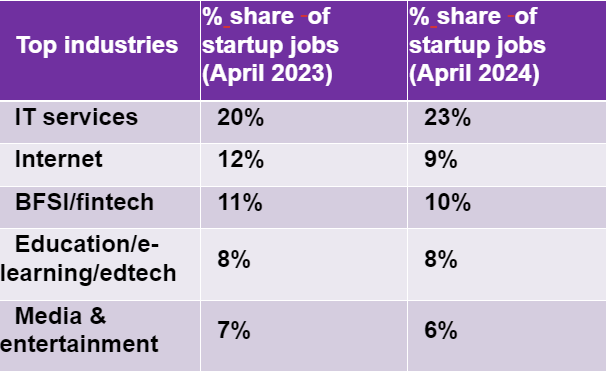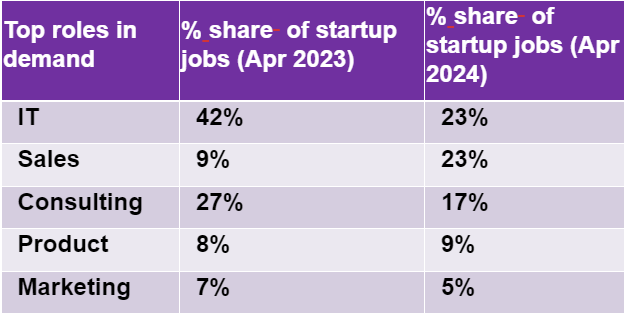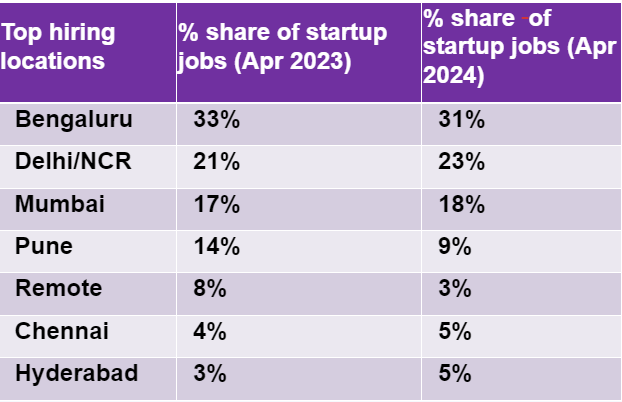Technological advancements, infrastructural development and easy availability of talent pool have helped India develop a booming startup ecosystem, and this has created many job opportunities for freshers, says a recent report by foundit, formerly Monster APAC & ME, a talent platform.
According to the findings of the tracker, the hiring index increased from 276 in March 2024 to 300 in April 2024. Coming to year-on-year growth, there has been a 9% increase in hiring, indicating an optimistic future for employment opportunities.
The report highlights the contribution of startups in accelerating the overall hiring for freshers. The startup ecosystem has registered a 37% increase in the number of startups since last year, and 14% increase in the total number of jobs provided by these startups. Out of these, 53% jobs are directed towards freshers.
Offering a comprehensive view of the hiring trends, Sekhar Garisa, CEO, foundit, a Quess company, says, “Startups are increasingly leaning towards recruiting fresh talent, with over half of their job postings targeted at newcomers. In this market, young professionals should differentiate themselves by picking up relevant skills and not solely rely on their professional degrees.”

In terms of industries, there has been a steady increase in jobs offered by startups in information technology services — from 20% to 23% between April 2023 and April 2024. Startups in the internet (12% to 9%), BFSI/fintech (11% to 10%), and media & entertainment industries (7% to 6%) witnessed a tad bit decline in hiring in the same period. Startups in the education/e-learning/edTech (8% to 8%) segment registered stable growth in April.

Coming to the startup hiring trends in terms of job roles, sales position vacancies have rapidly multiplied over the past year, with an increase from 9% in April 2023 to 23% in April 2024. Product-related job roles have also shown signs of improvement, transitioning from 8% in April 2023 to 9% in April 2024. Job roles that have displayed a decline in demand include IT (42% to 23%), consulting (27 to 17%) and marketing (7% to 5%).

Among cities, Bengaluru, Delhi-NCR and Mumbai bear the startup hub flag. But non-metro locations are not far behind and are on their way to gradually transitioning into entrepreneurial hubs.
It’s necessary to note that the majority of the startups no longer offer remote work options, and have moved back to the conventional work-from-office setups. Remote-work opportunities have declined from 8% in April 2023 to 3% in April 2024, according to the report.











